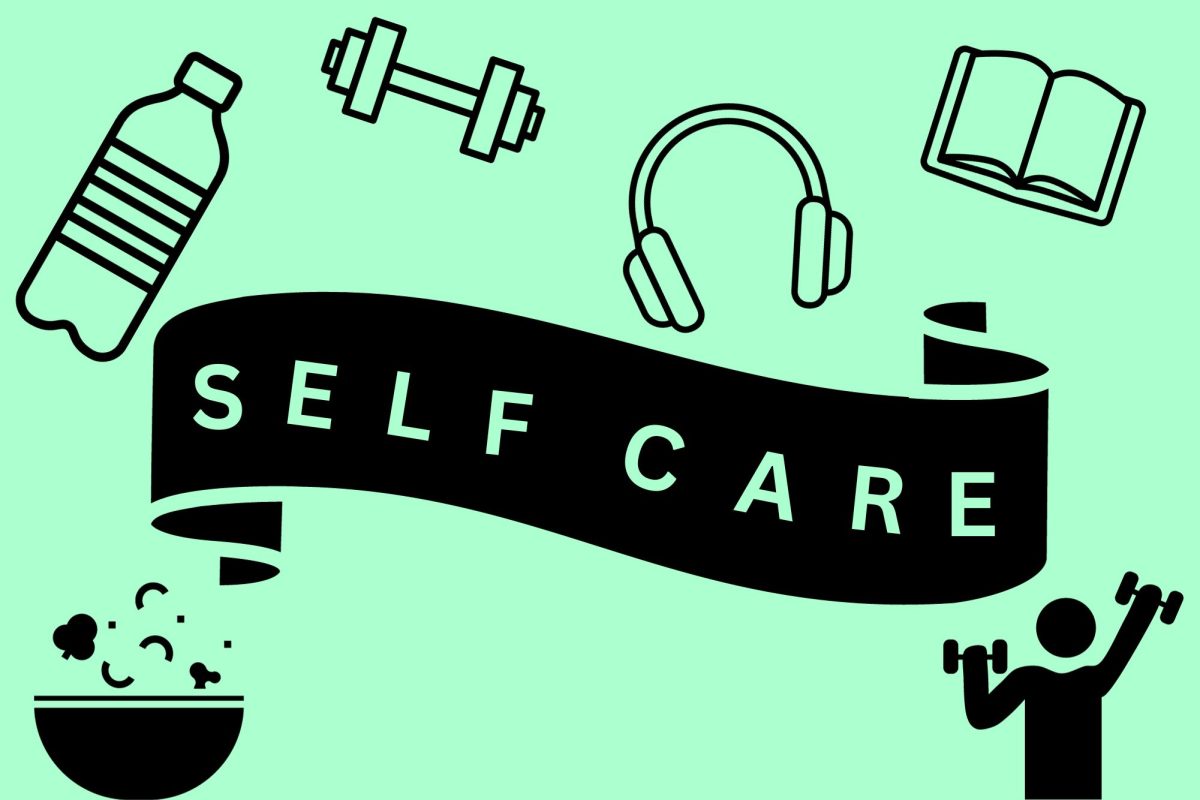With winter in full swing, there is plenty to be excited about, from enjoying a delicious cup of hot chocolate to going ice skating with friends. However, winter can also be a difficult period for one’s mental health, with some struggling from seasonal affective disorder, also known as seasonal depression. Shorter days and lack of sunlight typically associated with the months from September to February cause the body to overproduce melatonin, a hormone associated with sleep and underproduce serotonin, a neurotransmitter associated with happiness and positivity. These physical reactions help explain why individuals more frequently report feeling anxious, stressed or dejected during the fall and winter compared to other seasons.
For students, the academic pressure and stress that accompany winter only exacerbate this issue, making it common for students to feel burnt out or mentally exhausted. To prevent this, one needs to practice self-care and prioritize their mental health. Below we have curated a list of five simple but effective self-care tips that can help reduce your stress and anxiety this winter season.
Spend Time Outside
One way to disconnect from the stress of life is to reconnect with the beauty of nature. This can be as simple as taking a brief fifteen-minute walk around your neighborhood. Regular exposure to nature has been linked to lower risks of depression and improved concentration. If given the opportunity, you can improve your mood and boost focus by studying in an outdoor setting, such as on your patio or in your backyard.
Practice Meditation
Meditating is a common strategy recommended by psychologists to reduce anxiety and handle stress; it involves a simple focus on deep breathing while letting go of pressing thoughts. Taking just five minutes out of your day to meditate can help you slow down and live in the present. Meditation has numerous health benefits and, when done consistently, can significantly improve one’s mental health.
Talk to a Friend
It is normal to sometimes feel overwhelmed or stressed out. When this happens, it is a good idea to talk through your feelings with a friend, family member or trusted adult, as opposed to allowing your negative emotions to fester. Even when you are busy, setting aside time for your friends and family is important for your mental and emotional well-being.
Journaling Before Bed
Have you ever lied in bed for hours, trying to fall asleep but being unable to turn off your anxious thoughts? Anxiety and stress can lead to insomnia, a common sleep disorder and this lack of sleep can be extremely detrimental to one’s physical and mental health. Journaling before going to bed can help you unload your thoughts and feelings on a piece of paper instead of taking them with you to sleep. Not only does this prevent insomnia, but journaling can serve as an outlet for you to work through your emotions healthily and positively.
Saving Time for Hobbies and Interests
Between school, sports and extracurriculars, it can sometimes feel as if there is no time to spend on your interests. However, taking a break from studying and engaging in daily hobbies, whether that be reading, drawing or knitting, is critical to staying emotionally healthy. Pursuing your interests and engaging in activities you genuinely enjoy will help you feel fulfilled, an indicator of strong mental health.
As high school students, it can be easy to neglect self-care in favor of studying or performing other responsibilities. However, failure to prioritize your mental and emotional health will likely result in anxiety, stress and burnout. Especially during winter, in the wake of the fall semester, it is essential to make your mental, emotional and physical well-being your priority.











